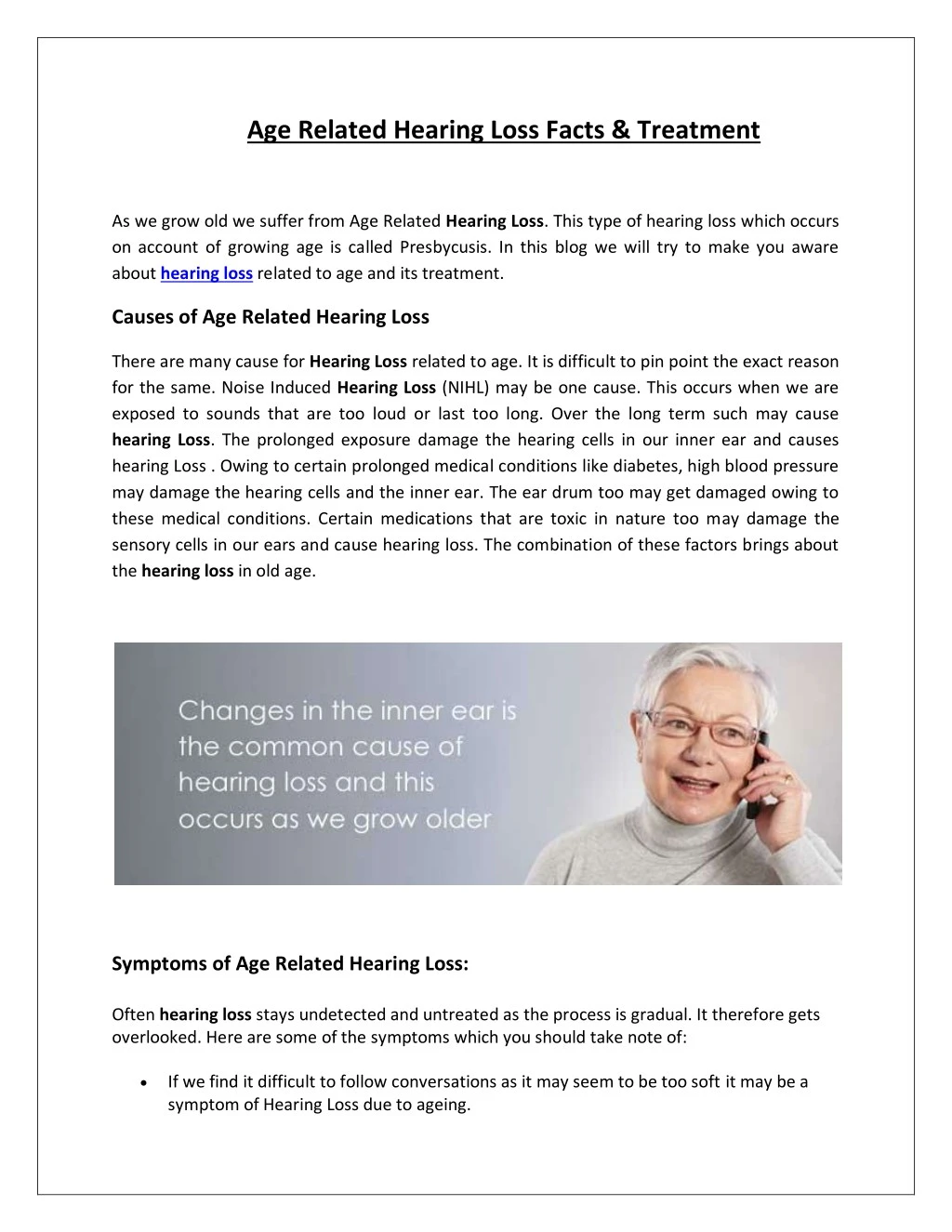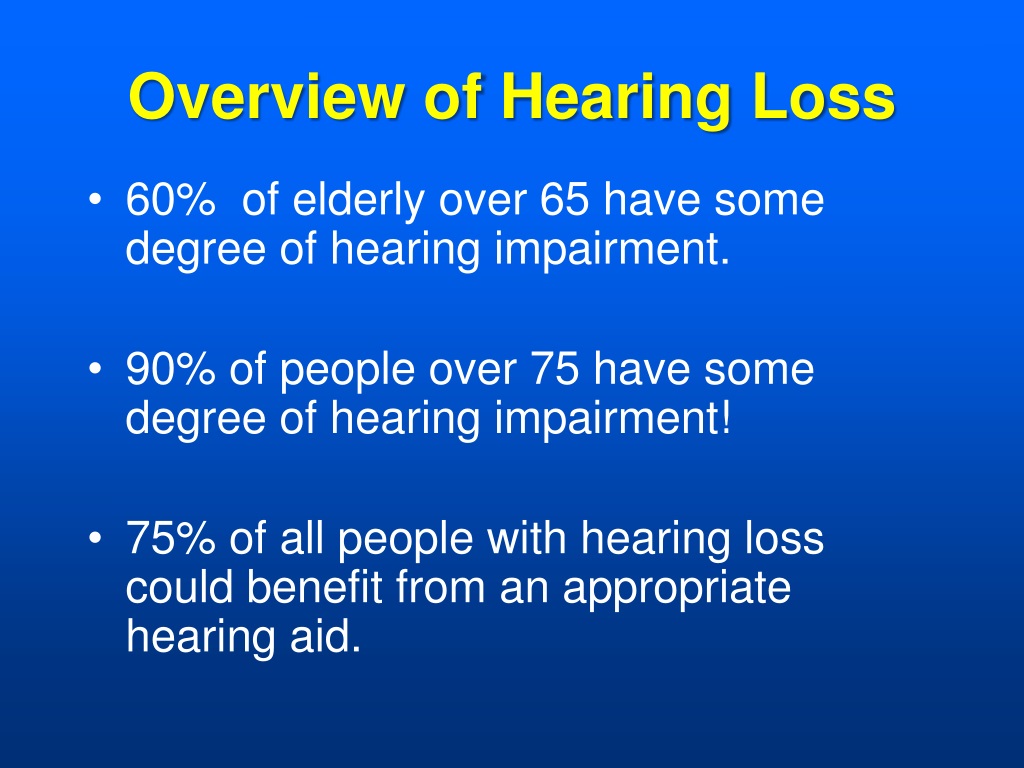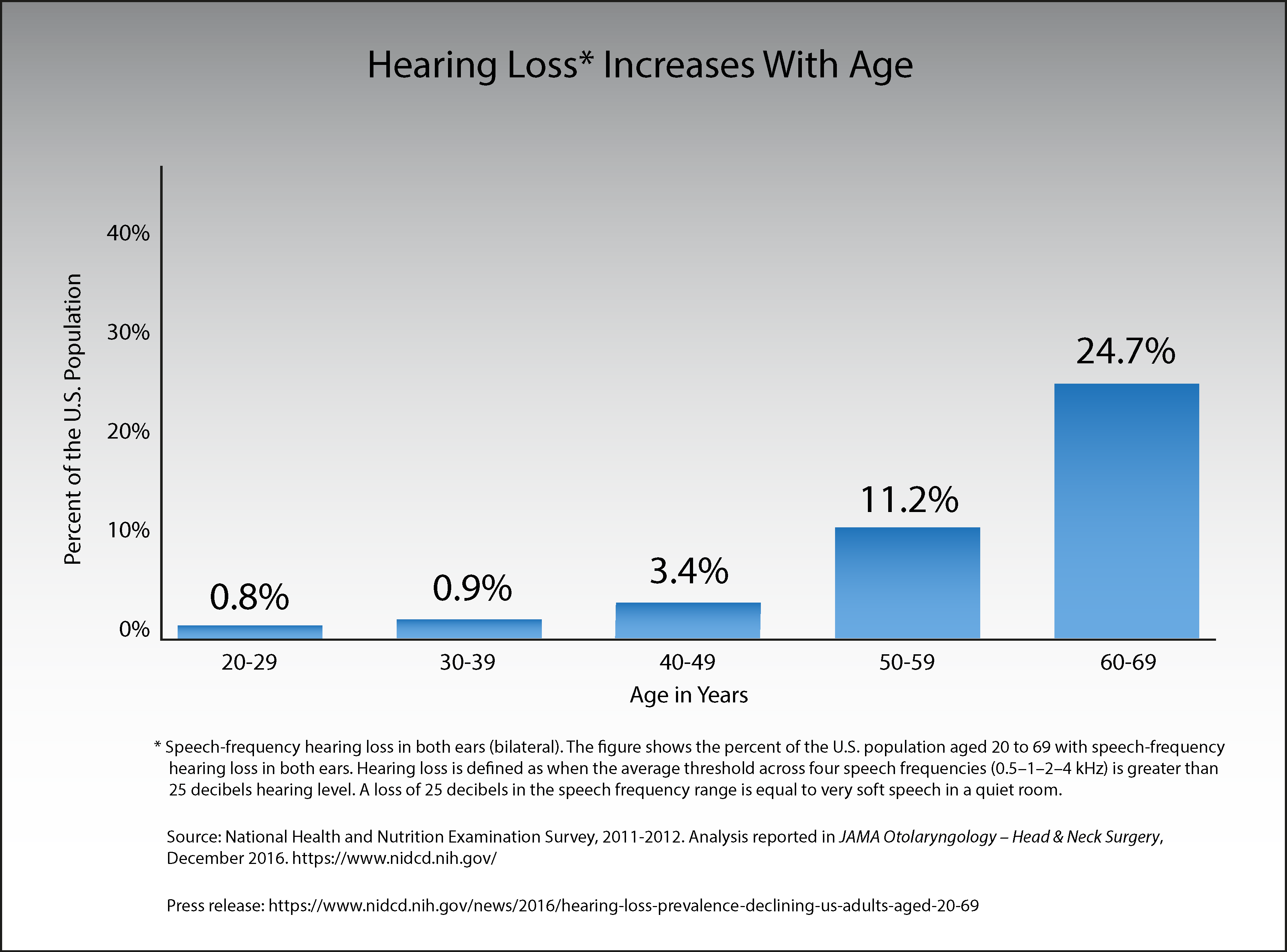


In terms of promoting resilience and wellness for aging and hearing, there are highly effective communication strategies that can be tailored to the individual to maximize their communication and minimize the effects of age-related changes in hearing. The second main point is that age-related hearing loss is often neglected and under-managed which can negatively impact quality of life (Li-Korotky, 2012). To focus on the prickly aspects of aging and hearing, the main message is that in older adulthood, individuals are at a higher risk for experiencing speech communication difficulties with and without changes in hearing sensitivity (Humes et al., 2012 AAA task force review) that meet the criteria for defining hearing loss. There is also capacity for resilience and a “living well with hearing loss approach” represents a way to cope and manage these changes in hearing and communication to improve quality of life. There is increased susceptibility to changes in auditory functions and a stigma about hearing loss in aging, with a great deal of diversity and experience. What I hope to explain is that the normal aging process presents a more complex picture for hearing than many people realize. My basic premise for this discussion is that speech-language pathologists have opportunities to promote hearing health and wellness with their older clients.

Today we will talk about how hearing abilities impact communication and quality of life at every age, and we will incorporate a wellness view that looks toward finding the best in growing old together. When we think of aging and hearing we are not often thinking about what is best about relationships, but about communication breakdowns. This is a moment that might go unnoticed or unaddressed in the context of a busy clinical day, but I think it touches upon what could be the tip of the iceberg for how hearing is affecting communication in relationships. Make a note for yourself on how you might respond to this kind of exchange if you experience it. Husband: “Oh never mind! It’s not that important.” Husband: “I said, did you validate the parking?” In this example, you are walking through your busy reception area with your client and their spouse. This is an interaction (Yorgason, Piercy, & Piercy, 2007) that gives you a small window on what might be a larger issue with how hearing impacts communication. > Nicole Marrone: I would like to start today by reflecting on a brief dialog.
PATHOLOGICAL AGING HEARING LOSS UPDATE
This text-based course is a transcript of the live seminar, “Normal Aging and Hearing: An Update for SLPs,” presented by Nicole Marrone, PhD, CCC-A.


 0 kommentar(er)
0 kommentar(er)
